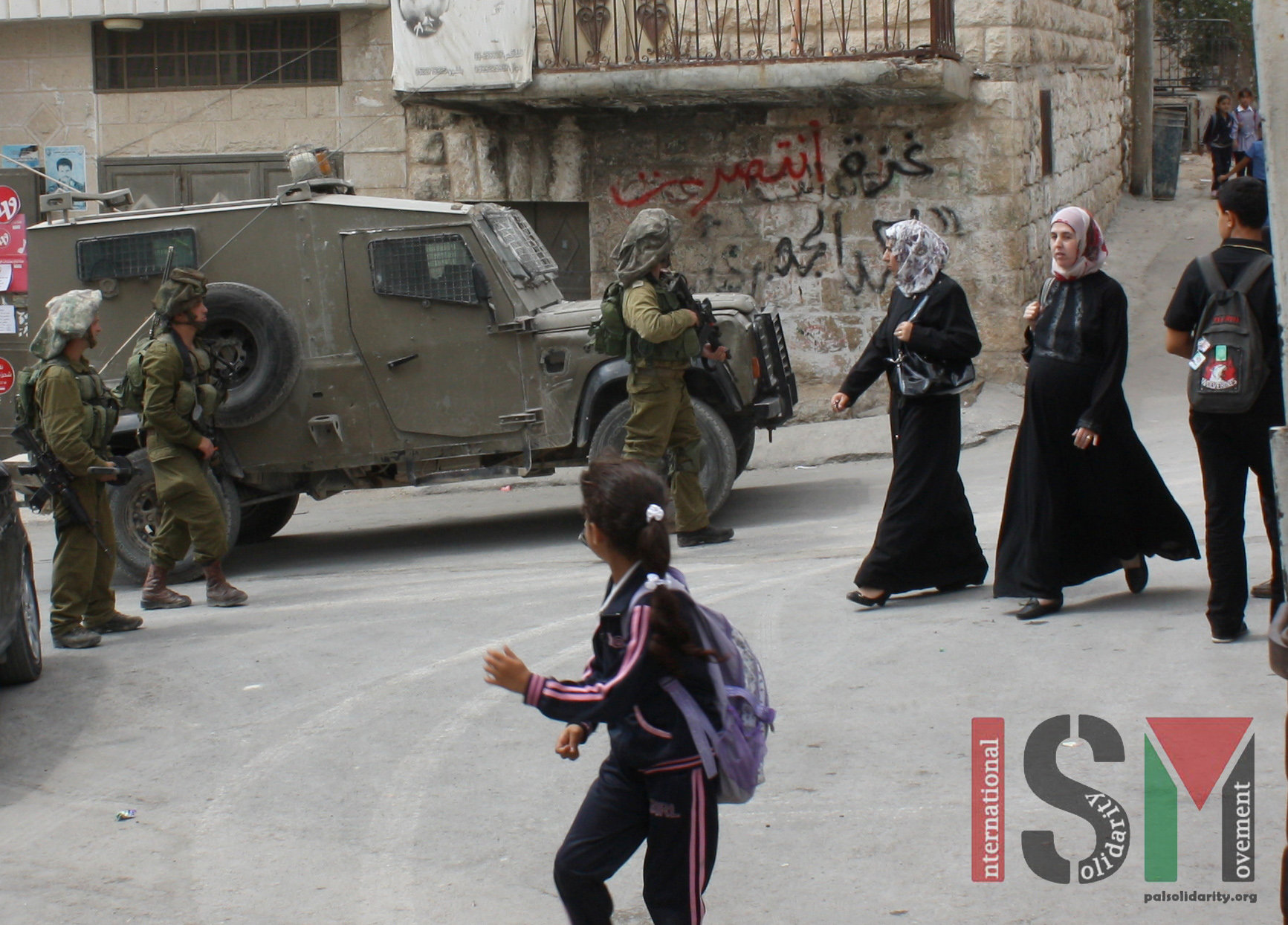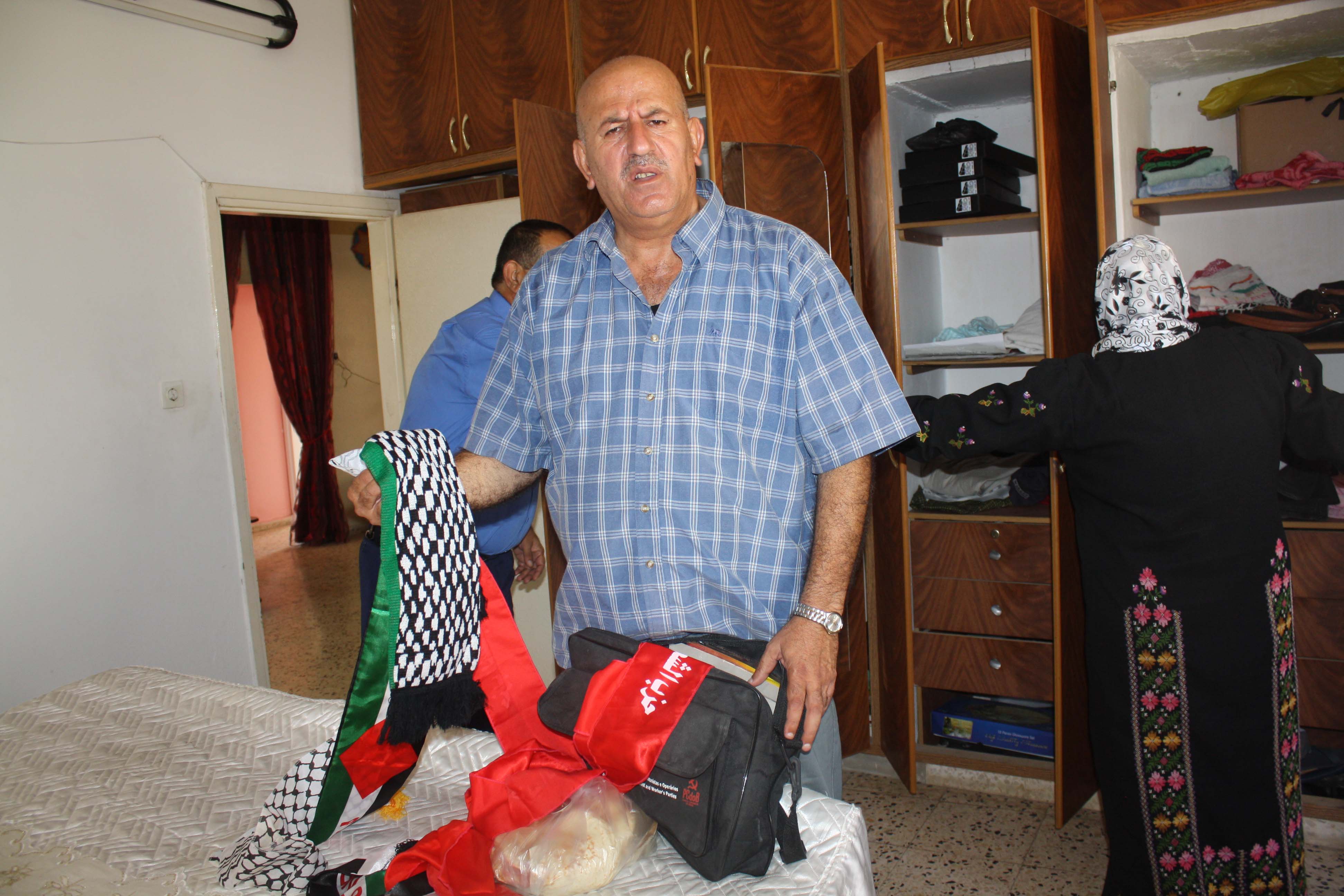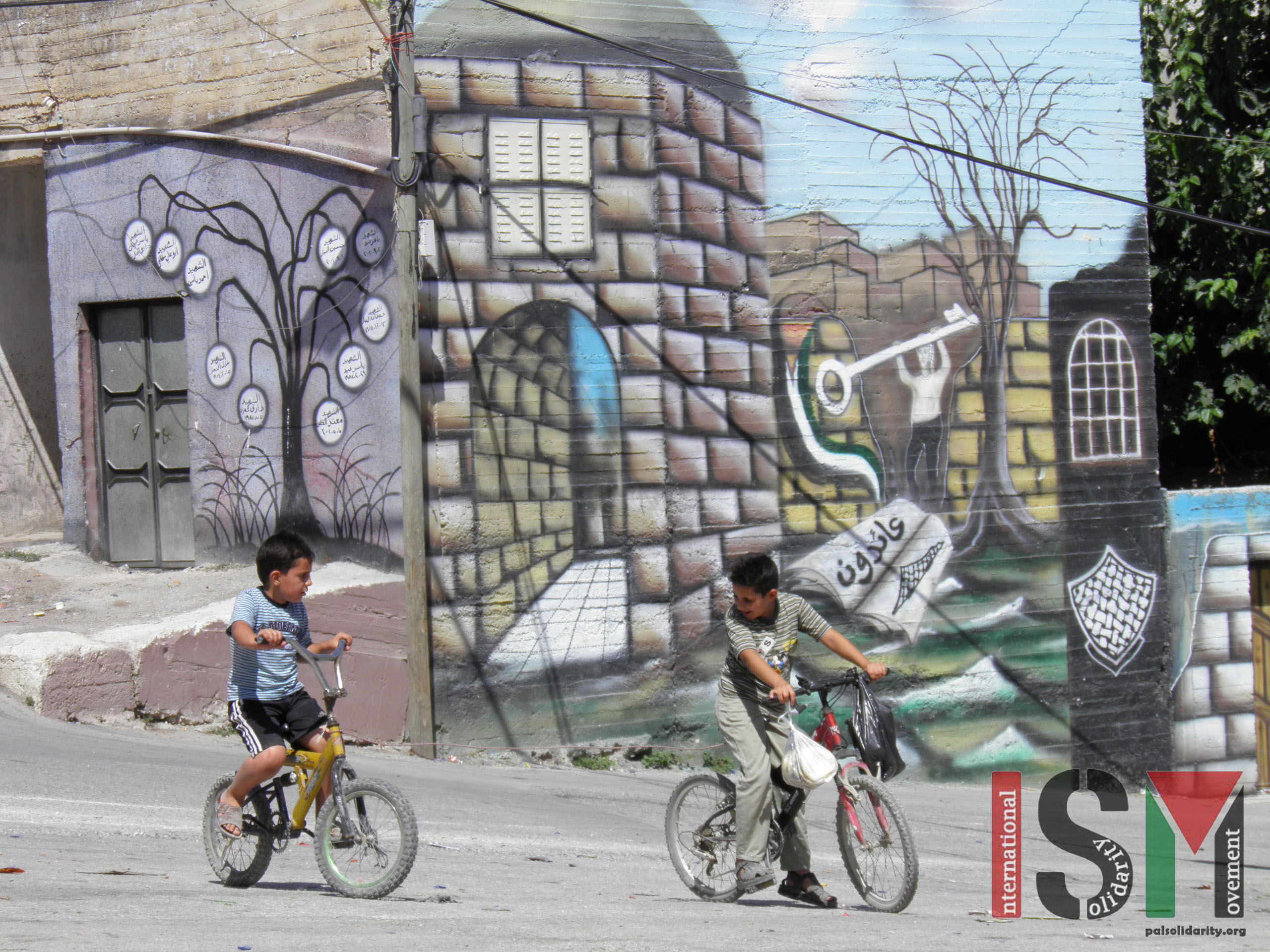Tag: Night Raid
-

Army incursions into Madama
9th September 2014 | International Solidarity Movement, Nablus team | Madama, Occupied Palestine We arrived in Madama yesterday, 8th September; in the early afternoon after we were told that during the night Israeli army invaded this village, and the nearby villages of Burin and Asira Al Qibliya. Our contact told us that the main road leading to…
-

Night raid in Far’a refugee camp
3rd September 2014 | International Solidarity Movement, Nablus team | Far’a, Occupied Palestine We arrived around one o’clock in the afternoon of September 1st to the Far’a Refugee Camp and found that we had awakened the three Mansour family households. “We didn’t have much sleep last night,” explained one sister. “The army kept us awake all night and…
-

Even the sky belongs to us
29th August 2014 | International Solidarity Movement, Nablus team | Burin, Occupied Palestine On the 25th August, the village of Burin, in the south of Nablus, was closed by the Israeli army and declared a military zone. A checkpoint was erected at the main access to the village, preventing the inhabitants from entering and exiting the…
